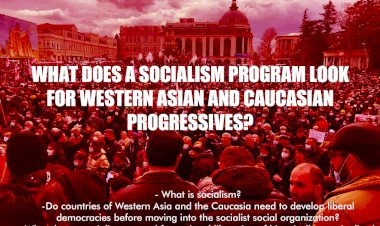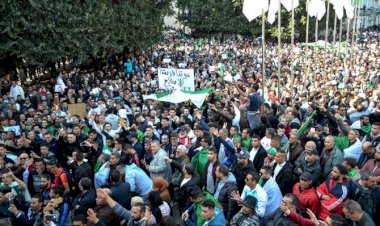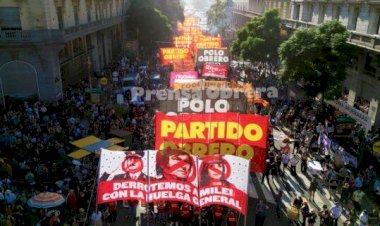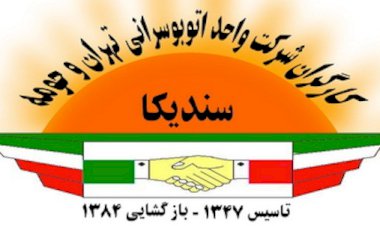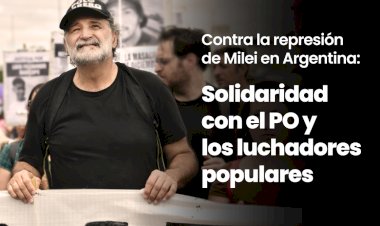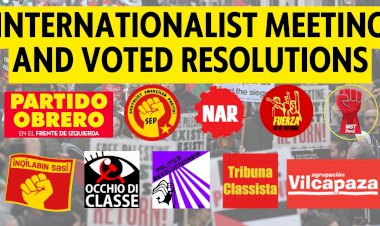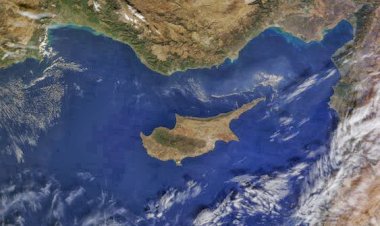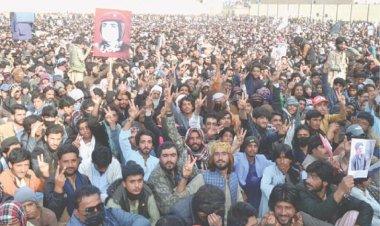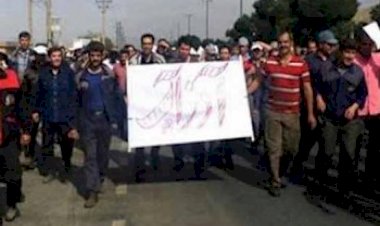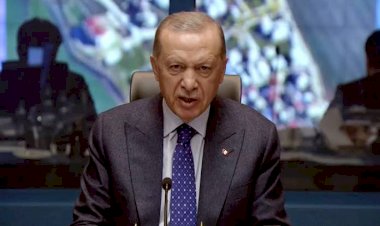Pakistan: Workers’ Suffering and Collective Action Against IMF Dictated Policies
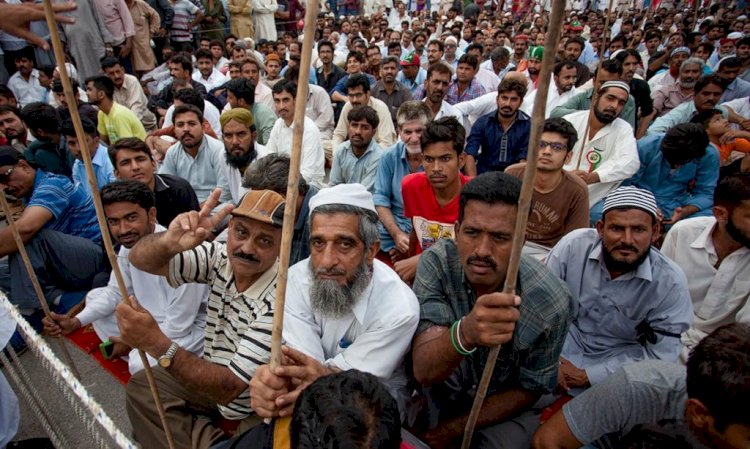
The article was originally published in Asian Marxist Review
By Umar Shahid
Pakistan is going through an unprecedented economic and social crisis; this crisis has shaken the social fabric. The economy is shrinking, unemployment is growing and various sectors of business are in crisis along with economic slowdown and high inflation. This economic catastrophe has inflicted social devastation on the whole society. The past two years of the current Pakistan Tehreek Insaaf (PTI) government proved to be the worst nightmare for the people of Pakistan. The ruling class is aggressively pushing the neo-liberal agenda in Pakistan. With massive privatization, right sizing and restricting of public institutions, it is inflicting more disaster in already crumbling structure. Pakistan witnessed a first-time negative growth rate since 1951-52 whereas in 2018 the GDP growth was around 5.8 percent. Contraction of the economy, plummeting revenues coupled with currency devaluation are resulting in a catastrophe. During this economic devastation, COVID pandemic has further accelerated the downturn of the economy. Apart from macro-economic fancy numbers the real victims of this economic dip are the ordinary people and the working class. Pakistan’s majority of the population doesn’t have access to necessities like food, shelter or health. Owing to lockdowns and business restrictions in the country and its main export markets, in just two months an additional 2.45 million now suffer from food insecurity. According to official statistics, one-third of Pakistan’s population lives below the poverty line while 66 percent of the population — or 145 million people — living in poverty, requires immediate relief. A recent survey by Gallup Pakistan reveals that more than seventeen million people may become unemployed in the future amid the COVID-19 crisis and the unemployment rate might hit 28 percent. Pakistan official labour force survey reveals a higher unemployment rate of 43.73 percent in the age group from 20 to 29 years old. In this grim social situation, the Federal Budget 2020 was passed by the Government. The budget was a classic example of IMF’s draconian policies; austerity measures for working-class and protection for the luxuries of rich. IMF is advocating for a reduction in current account deficit by tightening belts and reduce “non-necessary expenditures”, however, due to weaknesses of the general working-class movement in the country, workers have been vulnerable to continuous attacks from the ruling class in form of retrenchments, wage cuts and precarious work. According to the serious analysts, this budget is more aspirational than realistic with unrealistic revenue targets and measures.
Pakistan is facing a virtual debt trap situation due to high fiscal deficits. Ruling class intended to privatize its all institutions and on the name of right-sizing, reduction of the labour force in public institutions. Retrenchments process has begun in Pakistan Steel Mills, Pakistan Railways, Pakistan Tourism Development Corporation and Pakistan Television Network. Similarly, the Government has started the process of ‘right-sizing’ of the number of its Federal employees, which stands at 680,000 currently across numerous departments of the Federal Government, and they plan to cut it by 50 percent. On one side pandemic has unleashed the worst form of economic misery and the job market is much saturated. During these times, it will be the social murder of masses. Rising living costs made it impossible for people to afford basic necessities for living.
However, this economic crisis and continuous economic attacks have unleashed a fresh wave of protests and strikes in Pakistan. As Lenin wrote in his famous article, Inflammable Material in World Politics,
“The revolutionary movement in various European and Asian countries has latterly made itself felt so weightily that we see before us the fairly clear outlines of a new and incomparably higher stage in the international proletarian struggle.”
These words are so true to our present-day movement in Pakistan. These struggles will be awakening of a sleeping giant, the whole Working Class. Here we briefly discuss some of these struggles;
Health Professionals Strive for PPEs (Personal Protective Equipment)
The pandemic has exposed the contradictions of profit-based health system. Pakistan ranks 154th out of 195 countries in terms of quality and accessibility of its health care, doctor to patient ratio in Pakistan 1:1,300, the doctor-nurse ratio is 1:2.7, far below the WHO standards. Also, Pakistan is listed as one of 57 countries with a critical health workforce deficiency. Yet Government is aggressively pursuing the policy of privatization of the whole healthcare system, through infamous Medical Teaching Institute Acts in Khyber Pakhtunkhwa province and in Punjab province, it wants to handover all public hospitals to the private sector.
The priorities of Pakistan’s ruling class were exposed when front-line warrior against the pandemic, the health professionals started raising their voices for the provision of basic personal protective equipment (PPEs). Doctors, nurses and paramedical staff organized under the umbrella of the Grand Health Alliance (GHA) started protesting for the provision of health facilities while taking care of patients at the hospitals. In all over the country and in all four provinces including Gilgit-Baltistan health professionals took to the streets to protest for their grievances. Instead of resolving their issues, doctors were tortured and put behind the bars. After the pressure from the movement and public support, they won some of their demands but the struggle continues. The young doctors of Pakistan held Kashmir are still fighting for their demands. During pandemic, these front line fighters were most vulnerable and exposed to the illness yet the Government denies their demands.
Private Sector Workers Protests
After the COVID crisis, the first economic jolt came from the private sector. Many permanent workers have been laid off and they were thrown at the misery of market forces. Finance Ministry of Pakistan recently revealed that an estimated 3 million could lose their jobs due to the pandemic, a million from the industrial sector and 2 million from the services. Many who were working on daily wages or temporary work saw difficult choices to die either from hunger or pandemic. Pakistan’s exports are primarily compromised of textile products. Its main markets are Europe and the United States and due to lockdowns in those markets, international brands have stopped fresh orders, even many Pakistani factories saw their export orders being canceled. The textile factories owners do not expect demand to pick up again in a post-pandemic world. These owners are effectively shifting all of this economic burden to their workers. Throughout the country, workers were forcedly sent home on unpaid leaves which were layoffs and factory owners refused to pay them their past dues. These all factors incubated into workers anger and workers started militant protests for their demands. The main struggle was taking place in Denim Textile Karachi, Sapphire Textiles Sheikhupura, US Apparel Lahore, ChenOne Lahore and Kaasim Garments Karachi. In many places, workers were so militant for their demands that they didn’t give up. Factory management resorted to State help. Police were called and they opened fire on protesting workers. At many places, this State brutality was exposed to the workers. Similarly, one of the largest Group of Pakistan, Ibrahim Fiber Limited’s workers are still protesting since March against their forced dismissals and unpaid wages.
Struggle Against Privatization
Even when many were busy coping with the pandemic, the Government was aggressively pushing for its neo-liberal agenda. First retrenchments were ordered in Pakistan Steel Mills on 3rd June. Since then, Pakistan Steel Mills workers have been fighting on streets and in courts against this move. This episode was repeated in Civil Aviation Authority (CAA). CAA is a public institution that manages all Airports of the country and provides excellent services to Airlines. The government is trying to segregate CAA into two independent institutions and its Airport services department will be outsourced to private contractors. According to CAA employees, this plan is disastrous not only for workers but also for the country as well. Many small Airports will be shut down due to profitability and a large number of population will have to travel long miles to distant Airports and it will have a negative impact on local economies as well. It farces that Prime Minister wants to project Pakistan as an ultimate tourism destination by closing Pakistan International Airline and Pakistan Tourism Development Corporation. The worst kind of campaign against PIA Pilots and workers was launched after the latest PIA airline crash. Through their deliberate character assassination of workers and public institutions, the Government wants to hand over public assets to private cronies for profits. Closure of all PTDC Motels and forced dismissals of its 450 workers are the same story. Roosevelt Hotel of PIA in New York is prime real estate in Manhattan and supposedly the corporation of Donald Trump is also interested in buying this property. The historic PTDC Flashman Hotel Rawalpindi and its other properties are worth billions of rupees. Many private investors want to take over these properties in pennies for their profits. In the latest episode, ‘Right-Sizing’ announced in Pakistan Railways, in past private trains experiment has failed miserly yet the Government intends to use Railway properties for private investors to build commercial malls and hotels. It also wants to forcefully layoff thousands of Railways employees. In a recent move, 2600 layoffs were ordered in PTV and half of workforce from PIA. But workers are on the move against Government’s anti-workers designs.
Struggle Against IMF’s Budget
Federal Budget was like a lightning bolt for all Government employees, as the Government did not announce any salary raise. They announced pension ‘reform’ and reduction in the retirement age. The reforms are intended towards the early retirement with very little or no pensions. In the latest instructions, the Government wants to end annual pay raise and abolishing of vacant vacancies. This will be a disaster for the working class of Pakistan and the unemployed youth. Government job was considered as secure and well-paying employment, but all this is now past thing. All new hiring in Government sectors will be done on a contract basis without old-age benefits. It means furious attacks on current employees as well as many young aspirants who wanted to join Government services will have no choice. The budget unleashed a fresh wave of movements, as millions of Government employees united in All Pakistan Clerks Association (APCA) and other Government Employees’ federations came on streets to protest against proposed attacks on the working class. In this regard, since 13th June, 8 different unions of Railway have organized under the umbrella of Rail Mazdoor Ittihad (United Rail Workers). Rail Mazdoor Ittihad is holding a protest in different stations of Railway on a daily basis, so is APCA observing a complete pen down strike every Wednesday.
Despite no call from Central leadership of Pakistan’s largest electricity workers union WAPDA Hydro Electric Union, regional leadership at Khyber Pakhtunkhwa held big public meetings against the proposed privatization of PESCO (Peshawar Electricity Supply Corporation) in July throughout the province. This is an expression of the militant mood of the working class.
Organized Struggle
Conscious workers have fully understood that the ruling class has nothing for them. Instead, it is taking everything back which was won over centuries-old struggles. To silence workers voices at the start of pandemic, Essential Services Act promulgated in many public sector institutions including PIA, Utility Stores and others. At the same time, Pakistan courts are repeatedly issuing orders against the Unions. Owing to a pandemic, laws are effectively used to curb workers voices. Many police cases are registered against them. Now the situation is so pathetic that one ex-Union leader of NADRA Raza Khan Swati was removed from the job, for just a post on social media. It also exposes the fragile nature of the Pakistani state.
However, despite all hurdles and difficulties, workers are determined to fight against all odds. In this background, Pakistan Trade Union Defence Campaign (PTUDC) took the task of uniting all workers and starting the organized struggle. Even during the pandemic, PTUDC stood firmly with all the working class of Pakistan. In the past two months, three times nationwide protests were held against retracements, IMF’s policies and capitalism. As a step towards workers unity, major unions and labour organizations of Pakistan like PTUDC, Peoples Unity PIA, Employees Unity CAA, Trade Union Alliance Pakistan Steel Mills, APCA Pakistan, Government Employees Federation of Pakistan, Paramedical Staff Association, PTCL Workers Ittihad Federation CBA, PTDC Employees Union, Punjab Professors & Lecturer Association, Punjab Teachers Union, Rail Mazdoor Ittihad, All Pakistan Pensioner Association, PTV Workers, Radio Pakistan Workers, Pakistan Medical Association, Hotels Unions and other 50 unions came together at Lahore on 21st of July to discuss the formation of nationwide alliance against privatization and IMF policies, on 23rd July at a Rawalpindi meeting, an alliance was formed as “All Pakistan Employees Labour Movement”. The total membership strength compromising all unions is more than four million. In the coming days more meetings are planned in other cities of Pakistan.
A 12-point unanimous Charter of Demand was prepared, which called for the abandonment of plans to reduce the retirement age of government employees, right sizing and forced dismissals should be stopped immediately. The privatization of all public institutions, including PIA and Steel Mills, should be stopped immediately. The salaries of all employees should be increased by 100 percent in proportion to inflation. The Privatization Commission should be dissolved and all the institutions that have been privatized in the last five decades should be re-nationalized. All contract workers should be made permanent with full benefits. Plans to segregate Civil Aviation Authority and outsourcing of airports should be stopped immediately. Essential Services Act in all other institutions, including utility stores, should be abolished immediately. Double the minimum wage and gradually equal to the price of 10 grams of gold. While implementing educational and medical emergency in the country, the budget of both sectors should be increased by 20 percent. The decision to abolish the annual increment should be withdrawn immediately.
Advancing the call of Rail Mazdoor Ittihad for a complete “Wheels-Jam” strike on 5th August, all unions agreed to have collectively day of action on 5th August. On this day, along with the “Wheels-Jam” strike of Railways workers throughout Pakistan, Government offices will be closed by employees and all Airports services will be halted. At each Government office, a protest will be observed. This is a major step in the recent history of Pakistan as it expresses the mood of the working class. After the movement of 2007-08 which was democratically killed by Pakistan People Party Government, again working-class movement is on the surface and being discussed in the mainstream. We believe this collective action of the working class will take the movement forward and will leave an everlasting impact on workers' movement and pave way for the socialist transformation of the society.





